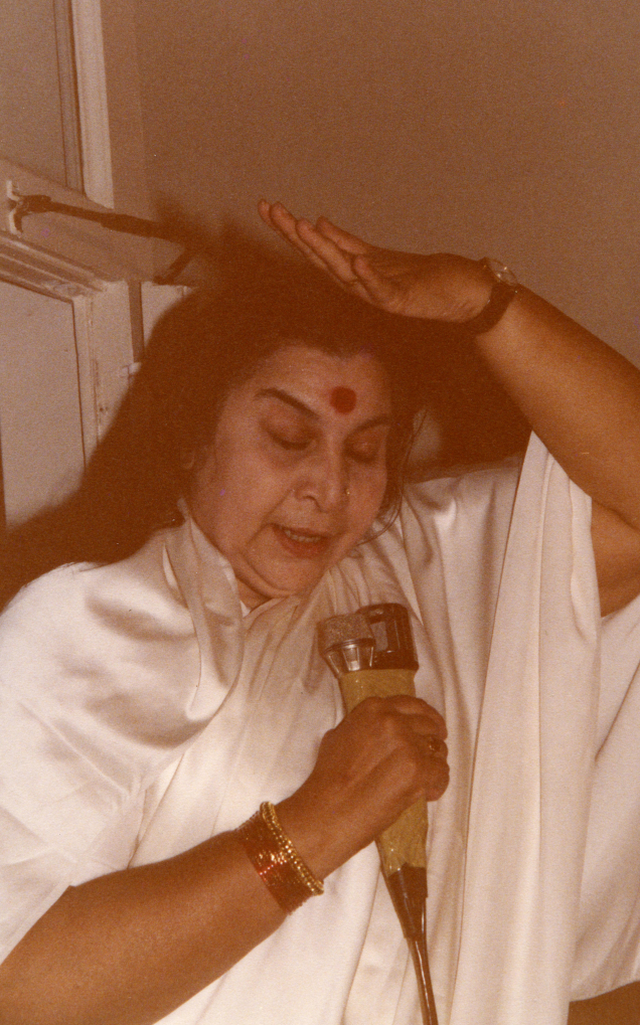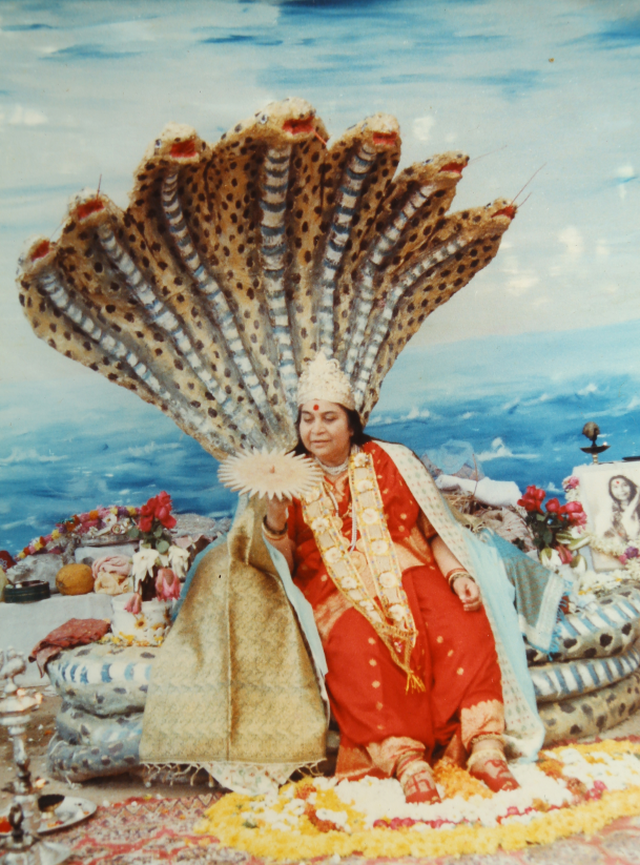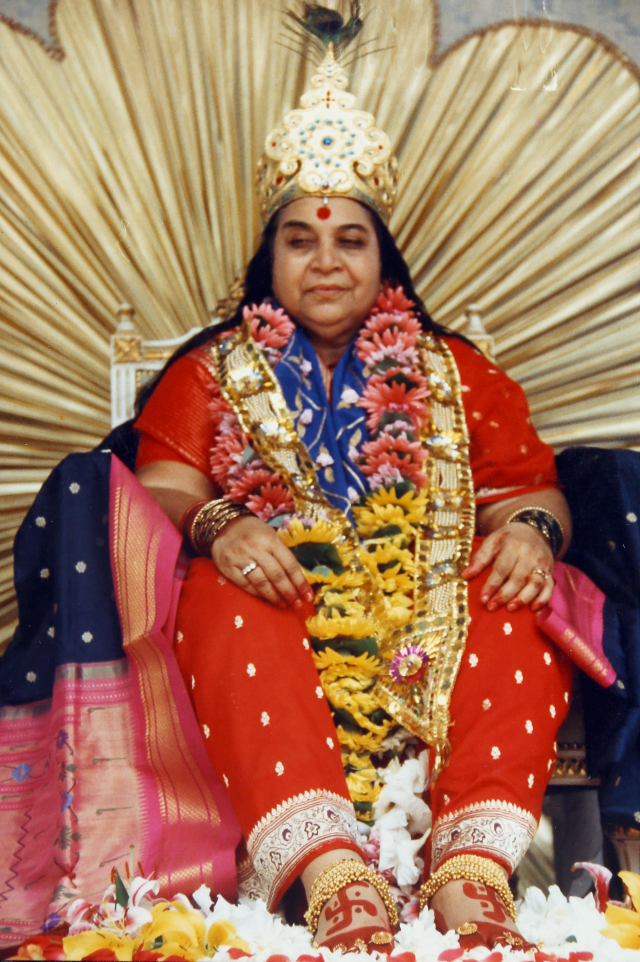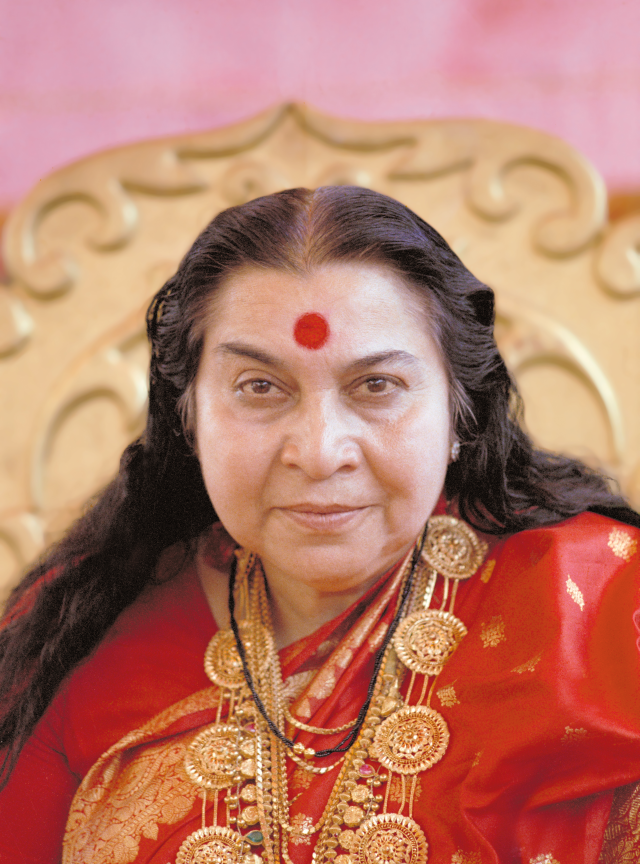2020 Celebrating Vasant Navarātri: “If you get sick, it is Viṣhṇu who will preserve, who will cure you.”

"Now the essence of Sahasrāra is integration. In Sahasrāra all the chakras are there, so all the Deities get integrated. And you can feel their integration. That means, when you get your Kuṇḍalinī in Sahasrāra, your mental, emotional, and your spiritual, everything being becomes one. Your physical being also merges into it. Then you have no problem, as to, “Yes, I love Mother. But ah I’m sorry, ah – I have to steal this money.” “Yes, I know, I recognize Mother, yes, I know She is great, but I can’t help it I have to tell Her lies.” Or, “I have to do this wrong thing, because after all, ah – I can’t help it.” There is no compromise with Me. It has to be completely integrated. Your dharma should be corrected. You cannot do anything wrong and then say, “I’m a Sahaja Yogi.” You cannot. But for this, the strength comes from within. Your Spirit strengthens you. You must just put in your willpower that “Yes, let my Spirit act.” And then you start acting according to the Spirit. Once you start acting according to the Spirit, you find you have no slavery of anything. You become samarth, means equal to your meanings. Samartha, also samarth means powerful personality."
1983-0204 Public Program, D.M.C. Park, Hanumān Road, New Delhi, India

Kul’angana Kul’anta-stha, Kaulinı Kula-yoginı,
Akula Samayanta-stha, Samayachara-tatpara.
O Chaste Lady, residing in the Sacrum bone, whose creation is the chakras,
and who knows all the secret techniques of the path to Self-realization;
You are beyond all categories and reside in the Sahasrāra,
and are to be found through inner worship You are devoted to those who worship You internally.
(Śhrī Lalitā Sahasrānama, verse 37)
"So today for water should really know that the water is a very holy thing and in our Pūjās also we use specially this dignifies the Kuṇḍalinī that means the Kuṇḍalinī is the water jar the carrier of Aquarius. And this is the age of the Aquarius.
So how important is this water and the water is the carrier of Divine Love, is the best carrier. And this is the time of Aquarius means the Kuṇḍalinī is made of Divine Water. So the whole idea of celebrating today the Lakṣhmī’s day is to understand that in us She has become the Mahālakṣhmī. By that we have so many powers of which we are not aware, I mean we do not know that we are realized Souls. Some of us, we do not know and that we have those powers within us that we can permeate into others. We can project our personalities to others. We can find out what’s wrong with them. We can find out about ourselves.
We can go into ourselves, we can go into – our permeation is like water is moving, is flowing all the time. And this is a very important thing that we should be aware of: our powers that we have achieved. Then we will start respecting ourselves then the Rājalakṣhmī comes in and then the Gṛuhalakṣhmī comes in and everything comes within when we become aware of what we have achieved of our self-esteem, of our dignity. So it gives us dignity, Mahālakṣhmī gives us dignity."
1981-1101 Diwālī Pūjā, Āśhram, 44 Chelsham Road, Clapham, London, UK

Auṃ̣ Twameva sākshāt Śhrī Viṣhṇu sākshāt Śhrī Ādi Śhakti Mātājī Śhrī Nirmalā Devyai namo namaḥ
O Divine Mother, You are verily Śhrī Viṣhṇu. Salutations to You!
Shayan’āmbudhau Nirmale Taw’aiwa N’aikyam pranat’osmi rūpam
To the form of the pure and shining one reclining on the ocean (upon Śhrī Śheṣha),
known indeed as the refuge of humanity, we bow with the greatest reverence and humility.</b>
"Today I will tell you about the Nābhī chakra which deals with this honesty of seeking. Nābhī chakra is the center which controls or manifests outside in the gross as Solar Plexus. Nābhī chakra has two sides: one is the left, another the right, and one in the center. So on the left-hand side is the Gṛuhalakṣhmī, on the right-hand side is the Rājalakṣhmī or Gaja Lakṣhmī and in the center is the Lakṣhmī which ascends into Mahālakṣhmī.
......
In the Nābhī chakra Nārāyaṇa existed since He was created by the Devī. And It looks after the seeking, the nourishing of the seeking like a father, and then It incarnates again and again and again to help our seeking to a higher position and a higher position till it reaches a point where you start seeking God Almighty.
Then you jump into the Śhakti of Mahālakṣhmī. Then you are in the hands of Mahālakṣhmī Śhakti. Means Lakṣhmī evolves into Mahālakṣhmī Principle.
Now this Mahālakṣhmī Principle resides in the central path of Suṣhumṇā. And this central path of Suṣhumṇā is to be established fully and awakened when the Kuṇḍalinī rises. When the Kuṇḍalinī does not rise, this path is kept absolutely black. It is absolutely black, there is nothing in it except for the Deities who are lying without any light. When the Kuṇḍalinī rises, then only these Deities get awakened and when they get awakened this Suṣhumṇā path, this central path of Mahālakṣhmī starts acting as the balancing power, to begin with at the Nābhī chakra.
So Nābhī chakra is surrounded by Ten Gurus, the Prophets who give you the balance, who come on this Earth again and again to give you balance in life."
1983-0131 Public Program, Day 2, The Nābhī Chakra, N.D.M.C. Park, Hanumān Road, New Delhi, India

Sahaja Yogi: Śhrī Mātājī, we all the Sahaja Yogis here, we pray to You and we promise You that we will be one, just one flower so that when You can see us,
You will see only one flower, one color, one perfume and one flower offered at Your Divine Lotus Feet.
And we pray Shrī Mātājī in our heart that Your Divine Lotus Feet will dwell forever in our being.
Amen. Jai Shrī Mātājī!
1985-0611 Talk to Sahaja Yogis, Founex, Switzerland
"While it is written in all the ancient Scriptures that God is fond of flowers.
In the name of Śhrī Viṣhṇu there are at least fifteen names which say that He is mad after flowers, He’s very fond of flowers, He must smell the flowers. And we also know that God is fond of flowers.
Somehow we know through our Unconscious understanding that God is fond of everything that is beautiful. He doesn’t like ugliness, but beauty that is sublime."
1983-0317 Public Program, Maccabean Hall, 146, Darlinghurst Road, New South Wales, Australia
Kuṇḍalinī Kuṇḍalinī
video
He Mā Ādi Kuṇḍalinī by Sanjay Talwar
video
Nirmal Mā Jagdambe Mā
video
Jay Jagadambe
video
Śhrī Kuṇḍalinī Stuti Stotram
video
Śhrī Viṣhṇu's 21 names
video

"Because Viṣhṇu is the one who is, the one who cures. We call Him a Dhanvantari – means a doctor. He is the One who cures because He is our preserver; He is the preserver of human beings. So if He preserve your dharma, then you don’t get sick. And if you get sick, it is Viṣhṇu who will preserve, who will cure you. So He is the one who is, we can call, Dhanvantari – is a doctor."
1994-0713 Śhrī Viṣhṇu Pūjā, Paris, France
Jai Śhrī Mātājī!
On behalf of the festivity team!